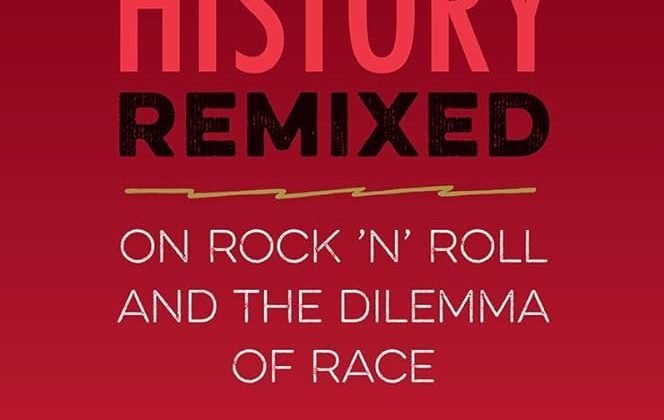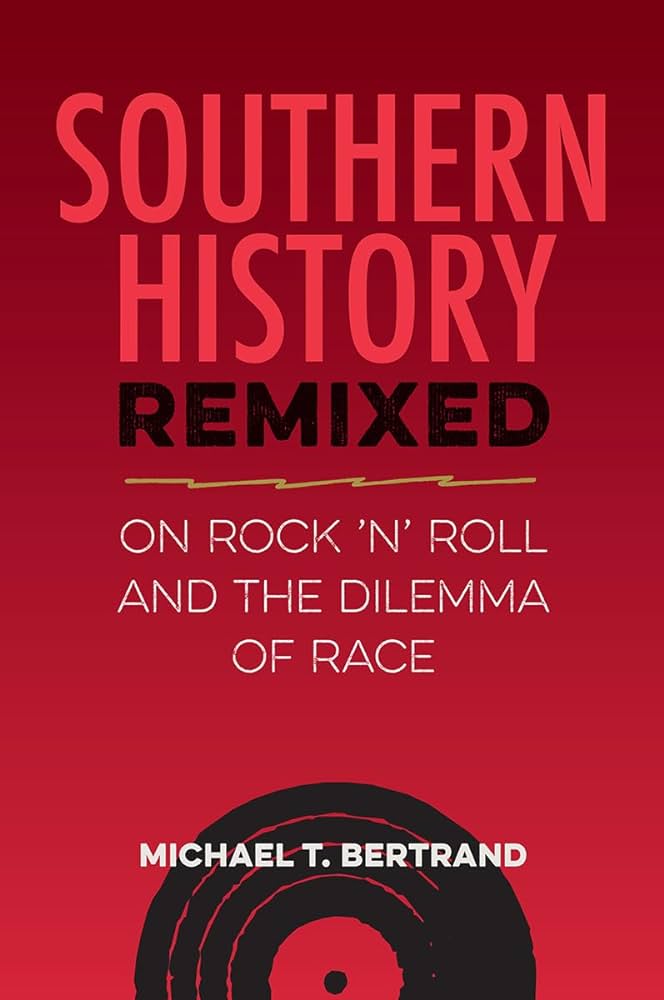

Michael T. Bertrand is Professor of History at Tennessee State University. This interview is based on his new book, Southern History Remixed: On Rock ’n’ Roll and the Dilemma of Race (University Press of Florida, 2024).
JF: What led you to write Southern History Remixed?
MB: My interest in both southern history and popular music and a belief that they are inextricably linked led me to write Southern History Remixed. I am particularly intrigued as to how popular music influences people’s attitudes and behavioral tendencies. For example, the book begins by examining the White Citizens’ Council’s 1956 onstage attack in Birmingham, Alabama of pop singer Nat “King” Cole. One of the assailants yelled a racial slur as he ran toward the entertainer: “Let’s go grab that coon!” Exploring the etymology of the racist epithet, I traced its origins to a popular music phenomenon of the late 19th century, the “coon song craze,” that emerged simultaneously with racial segregation, disfranchisement, and the increase in lynchings. The word as a racial characterization contemporaneously and contemptuously entered everyday vernacular. It was used at the time, and fifty years later, to identify and denigrate Black people, suggesting that popular music has the power to influence a society that consumes what often is arbitrarily perceived as ephemeral and frivolous.
JF: In 2 sentences, what is the argument of Southern History Remixed?
MB: Southern History Remixed argues that popular music played a key role in the shaping of the U.S. South from the late 19th century to the era of rock ‘n’ roll in the 1940s, 1950s, and 1960s. It urges readers to take the study of popular music seriously, arguing that what occurs through its creation and consumption affects and reflects what happens in the larger society.
JF: Why do we need to read Southern History Remixed?
MB: In highlighting the longstanding yet often unacknowledged connections between popular music and larger societal trends, Southern History Remixed focuses on a post-World War II generation bound by a segregationist past drawn into a racially-inclusive world of Black radio programming, rhythm and blues, and youth culture. The results of this collision often led to confusion and ambivalence among many of the South’s adolescents, tendencies that undermined the region’s racial status quo. Relying on a wide array of first-hand sources, the book challenges the conventional wisdom that paints all white southerners of the period as of one mind in reference to race. Taking popular music seriously allows us to view the cracks in the monolithic model and comprehend a changing South encountering the modern civil rights movement as a complex and nuanced process. Indeed, Southern History Remixed concludes with the phrase, “It’s complicated.”
JF: Why and when did you become an American historian?
MB: For as long as I can remember, I have been fascinated with American history. But it was not until I entered college and began taking courses on U.S. and southern history that I realized that I wanted to spend a lifetime asking questions of the past that related to the present. This was particularly true when I discovered in history classes that music rarely made it into our readings or discussions. Because music had been so important to my family and social circle, I was confused by its absence in the history classroom. In many ways, I have made it my professional mission to rectify what I consider a serious omission.
JF: What is your next project?
MB: I am continuing to chart and analyze the generation of southerners, both Black and white, who reached adolescence in the late 1940s and early 1950s. My first book, Race, Rock, and Elvis, examined this group and suggested its music-loving members were significant historical actors. Southern History Remixed put this generation’s actions into a longer context that stretched back to the mid-19th century, with music again being the glue that kept together the narrative. Although my next book does not yet have a working title ready to make its debut, I would like to investigate how music continued to affect the worldviews and actions of this rock ‘n’ roll generation as it headed into the late 1960s, 1970s, and 1980s.
JF: Thanks, Michael!